Maya Underworld: Peek Inside the World's Longest Flooded Cave
Exploring an underworld
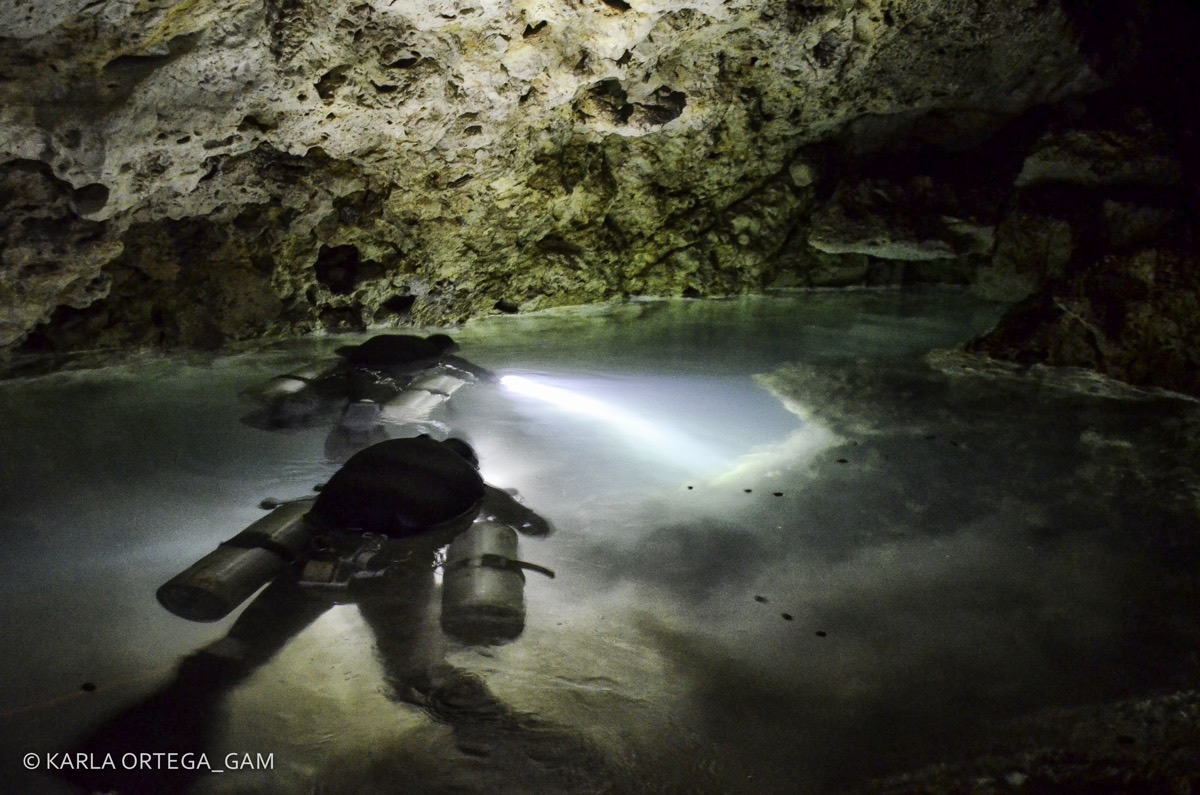
Divers enter the flooded underworld that lies beneath the Yucatán Peninsula. Cave explorers with the Great Maya Aquifer Project announced this week that two cave systems near the city of Tulum are actually one, making the system the longest flooded series of caves in the world. [Read more about the longest flooded cave system.]
Underground explorer
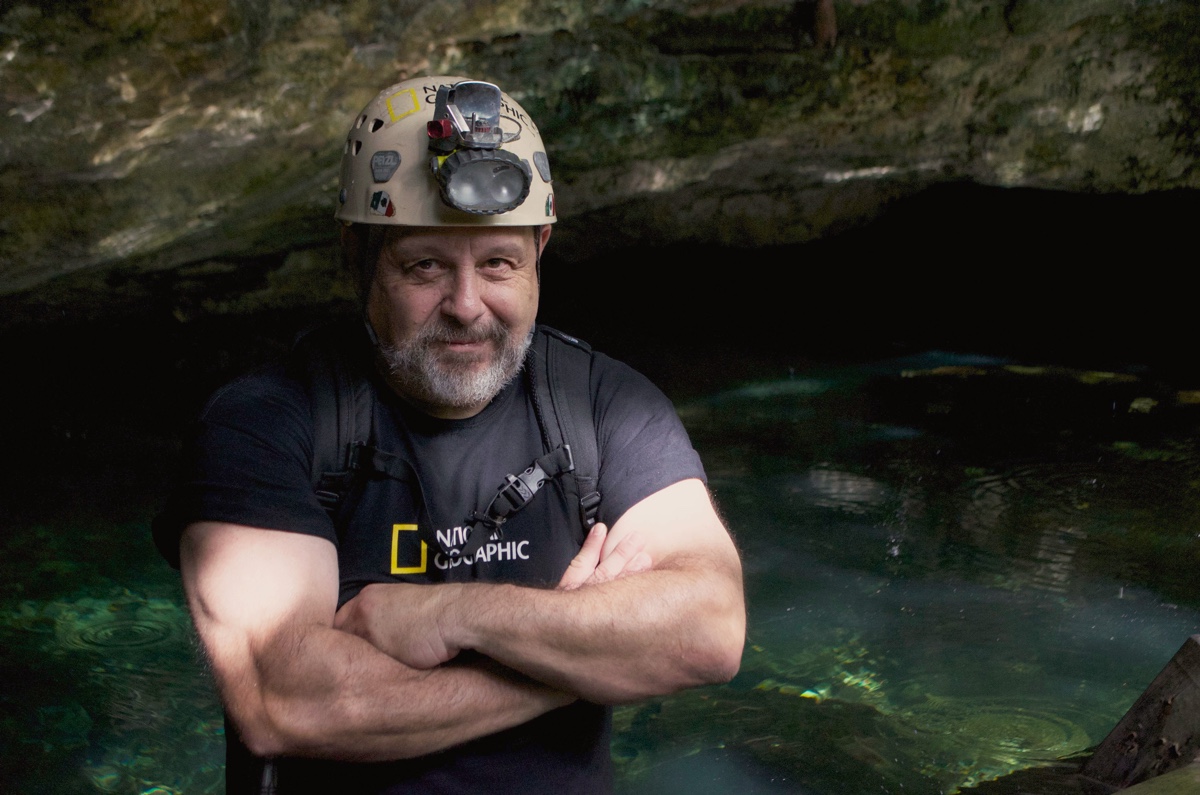
Director of the Great Maya Aquifer Project (GAM) Guillermo de Anda poses in front of a cave entrance near Tulum, Mexico in the state of Quintana Roo. GAM explorers discovered connections between the Sac Actun and Dos Ojos cave systems in the region. Their combined length is 215 miles (347 kilometers) long, pushing the combined system past the previous first-ranking flooded cave, the Ox Bel Ha system (also in Quintana Roo). The larger system absorbs the smaller in naming conventions, so Sac Actun is now the name of the entire set of caverns.
An alien world
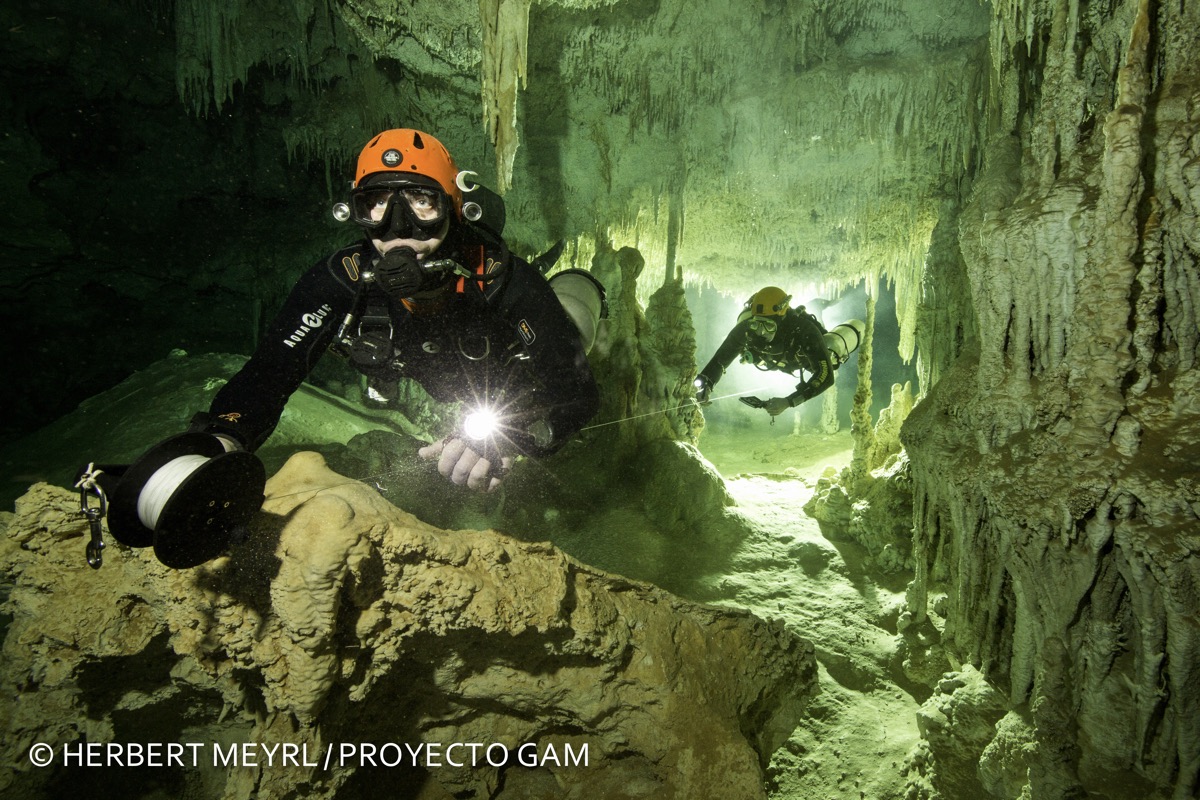
Divers roll out a guide string as they swim through the Sac Actun cave system. Cave diving is a specialized skill — and dangerous. According to cavediving.com, the biggest dangers facing cave divers are losing their light source and becoming disoriented; nitrogen narcosis, oxygen toxicity and lack of oxygen, which can be caused by issues with breathing equipment; running out of air; getting lost; and outpacing one's training ability.
Fossil find
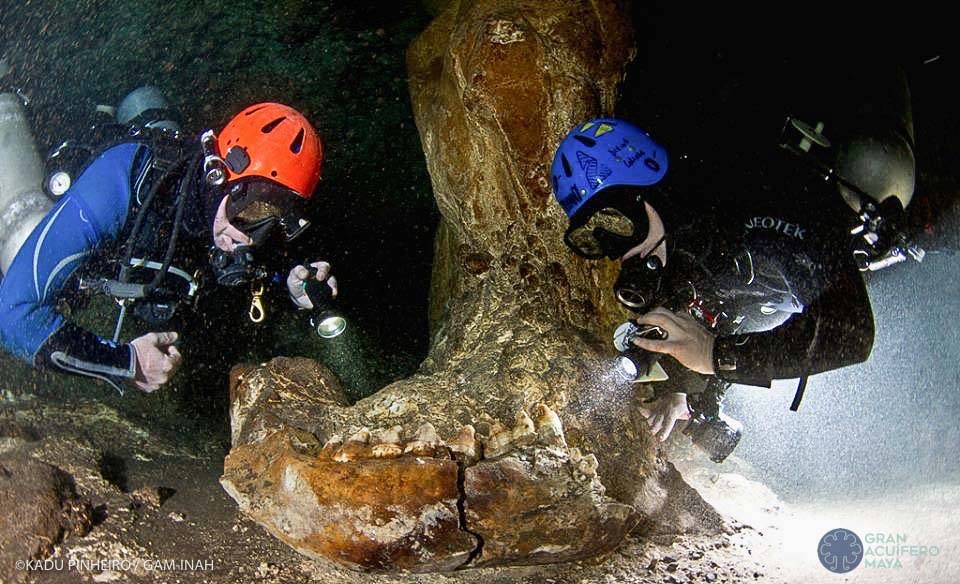
GAM divers examine the fossilized mandible, or jaw bone, of a gonforterio inside the Sac Actun system. Gonferterio are extinct ancestors of the elephant. They were smaller than mammoths and may have been hunted by the very earliest humans on the North American continent, according to 2014 research published in the journal PNAS.
Preparing to dive
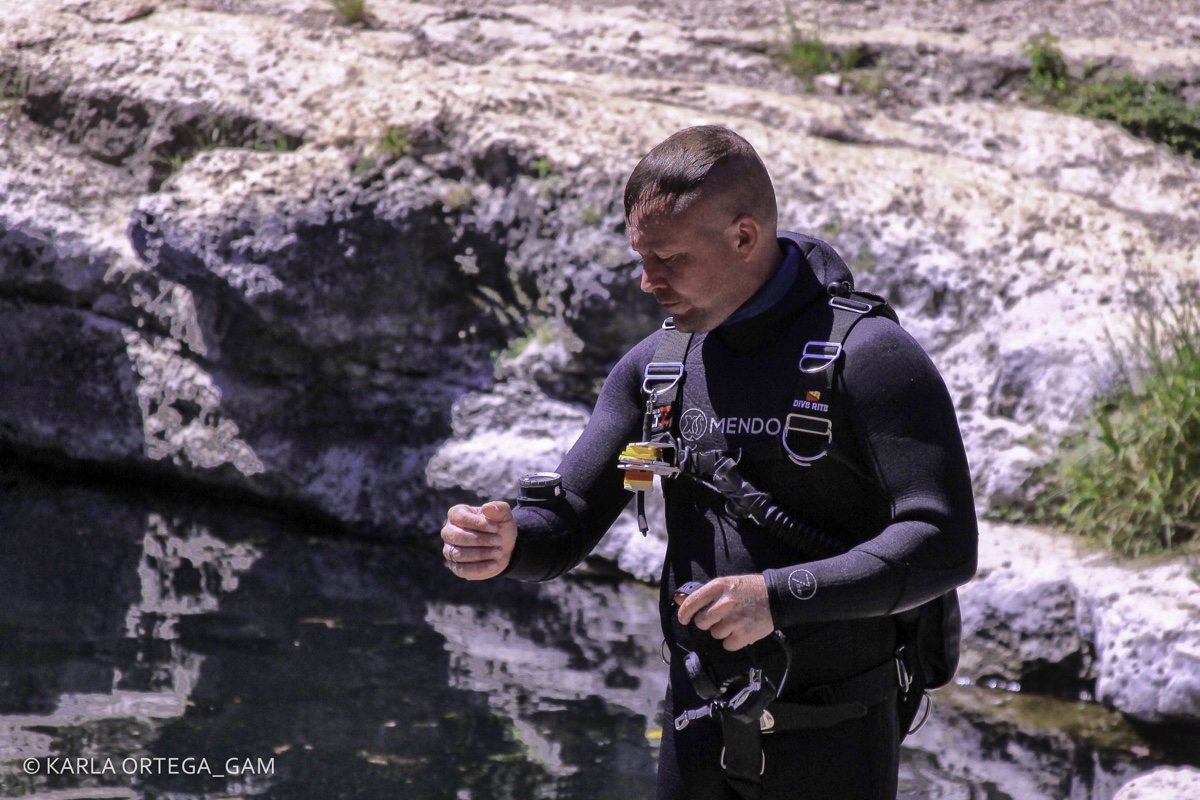
GAM exploration director Robert Schmittner has been searching for the links between the Sac Actun and Dos Ojos cave systems for years. He and his fellow divers now hope to find links that connect the Sac Actun system with three other underground labyrinths near Tulum.
Sunlight below
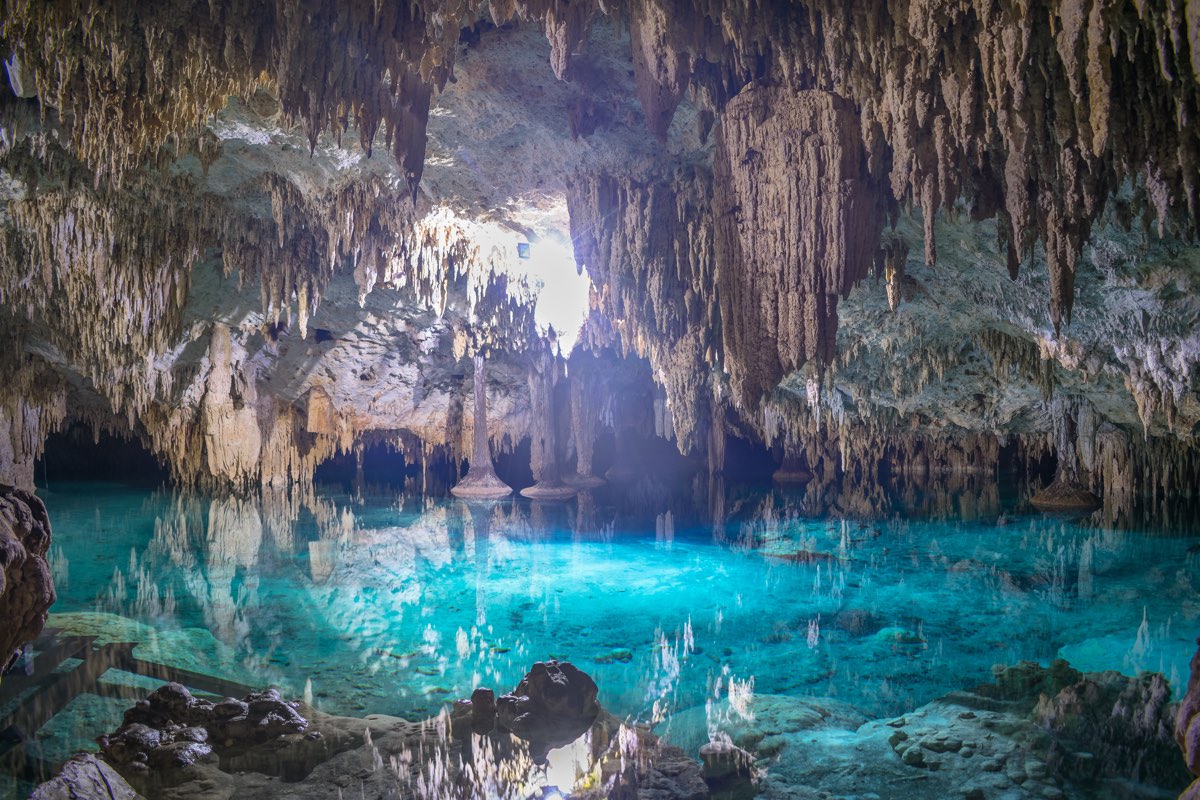
The Sac Actun system and other flooded caverns on the Yucatan are punctuated by sinkholes, or cenotes, that let occasional light into these underground rivers. Ancient Maya people believed these cenotes were the entrance to a mythical underworld and the home of the rain god Chac.
Rocks and water
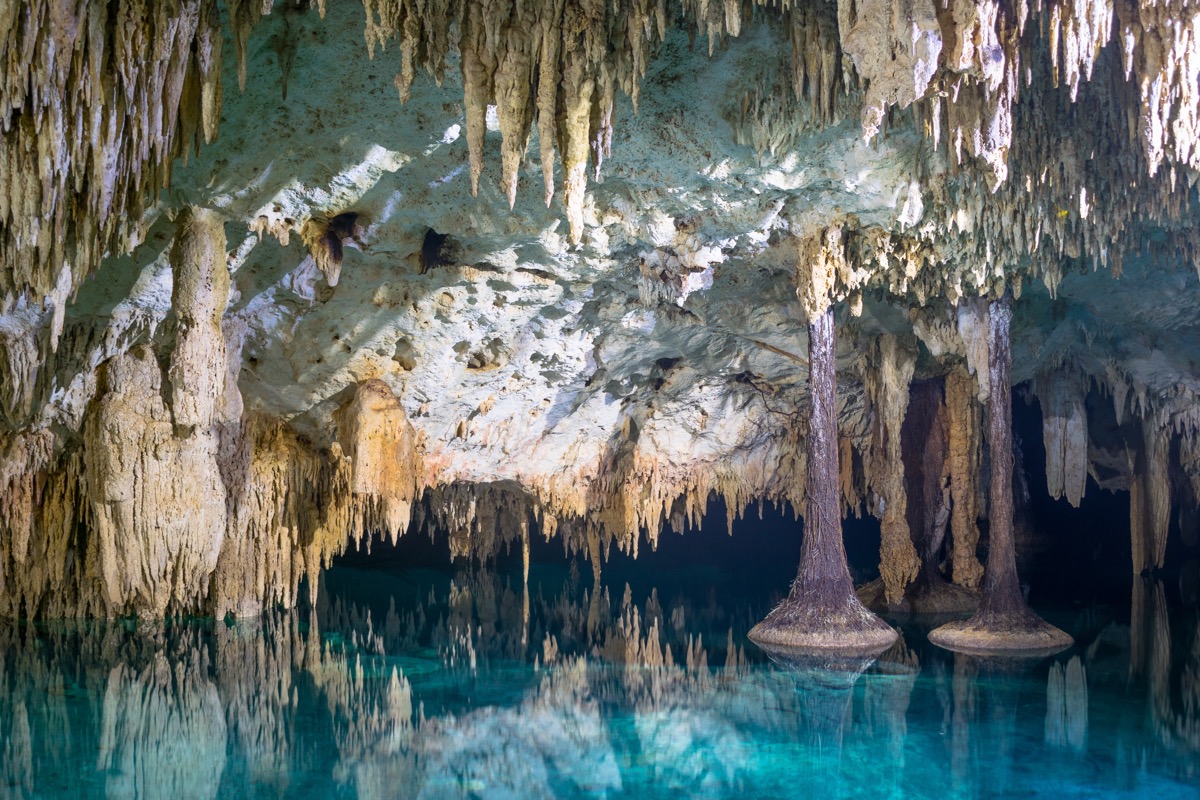
Gorgeous rock formations decorate the crystal-blue waters of a cenote in the Sac Actun cave system.
Sign up for the Live Science daily newsletter now
Get the world’s most fascinating discoveries delivered straight to your inbox.

Stephanie Pappas is a contributing writer for Live Science, covering topics ranging from geoscience to archaeology to the human brain and behavior. She was previously a senior writer for Live Science but is now a freelancer based in Denver, Colorado, and regularly contributes to Scientific American and The Monitor, the monthly magazine of the American Psychological Association. Stephanie received a bachelor's degree in psychology from the University of South Carolina and a graduate certificate in science communication from the University of California, Santa Cruz.









